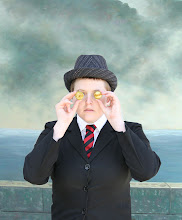Supervision Meeting:
Ask Ruth about dissertation.
Situating the piece of writing as a part of the submission:
- What function does it have relating to the whole?
- Choosing a writing mode
- History/background to the project – methods of engagement – outcomes/discussion of project.
- Where are the focus points?
To consider:
- Mass communication theory – re scientists thinking artists have more accessible work – gallery audience is just as self moderating as those who read scientific journals although those aren’t two groups which usually overlap.
- How to change the audience? Public art etc?
- What evolutions can art make/conversions made previously (look up land art, Francis Alys etc.)
- What is the value of a new set of images? Victor Burgen – appropriated images
- Sets dependent on photographer (Rob’s set etc)
- Photos looking away from glacier/from glaciers perspective – Mark Adams
- Issues that surround the project/methods and modes/limitations
- Methods of engagement – outcomes?
- Tourism/Science lense
- Activities at the location
- Tourist pull cards (extreme sport, grand scenery and maori culture)
- Intervention
- Poetic way to author work, vs intellectual authoring of new meaning through existing images
o Political implications of both?
- Photographs – temporary, slice of time. Is photography the main mode?
- What are the strengths and weaknesses?
- How do you activate its power and what effect can it have.
- Land artists – alys, hector Zamora etc – poetic gestures
- How do you combine a poetic gesture with empirical data?
- Intricate arguments? Why do we have apathy?
- Narrowing subject further – being aware of the other dialogues it will touch upon but focussing on something very specific.
- Image vs action could the scientists carry out the action?
- Object through process.
- What kind of gesture – would need a light touch, within limits of what could be carried in and out etc.
- Development of a set of gestures in preparation for returning to the landscape?
- Limitations of working within large landscape etc... talk to DOC find out what’s possible etc.
Wednesday, April 20, 2011
Saturday, April 9, 2011
Point of Departure
Finding a punctum/point of departure/stoppage is key.
The unexpected that allows the viewer to access the concept...
The unexpected that allows the viewer to access the concept...
Sunday, April 3, 2011
Wise words from Danny Butt (for the record)
"Preparing for a course of study always involves making a relatively large proposition that inevitably falls apart as the process of making begins (at least, that is my experience both as a student and a supervisor). Every beginning is usually made in swampy terrain, often out of frustration from a no-longer bearable not-working rather than any clear direction! So in that way, I think it's valuable to think of the fear or the rut not as wasted time but the formation of potential, like the way a lightning storm doesn't just appear from a cloud, but is the result of a long feedback process of low-intensity ice-collisions that build charges that eventually lead to the lightning event."
Subscribe to:
Posts (Atom)
